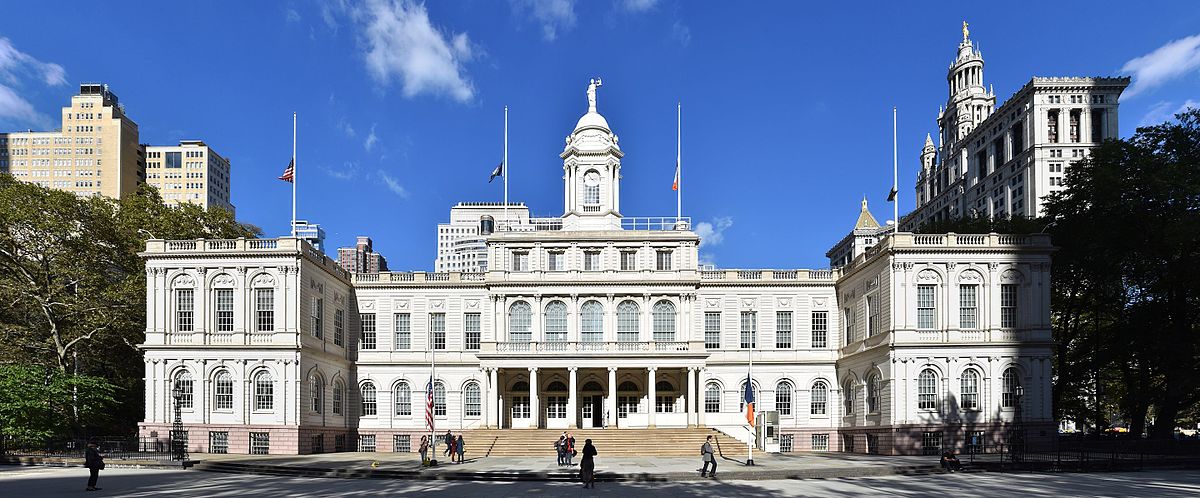Tag: new york city
-
What to know about the Democratic primaries for New York City Council

One hundred candidates ran in 28 Democratic primaries for New York City Council on June 24, 2025, including 13 that Ballotpedia identified as battlegrounds. All 51 council seats are up for election this year. The Council is the city’s primary legislative body. It is responsible for adopting the city budget, passing legislation, monitoring city agencies,…
-
Zohran Mamdani (D) leads with 43% of the vote in New York City’s mayoral race

Zohran Mamdani (D) currently leads Andrew Cuomo (D) in the Democratic primary for mayor of New York City, which was held on June 24, 2025. As of June 25, at 10:50 AM ET, with 93% of the vote counted, Mamdani has 43% of the vote to Cuomo’s 36% of the vote. Cuomo conceded on election…
-
Thirteen battleground Democratic primaries for New York City Council will be held on June 24, 2025

Ninety-five candidates are running in 28 Democratic primaries for New York City Council on June 24, 2025. That’s up from 49 candidates in 17 Democratic primaries in 2023, the special two-year post-redistricting term mandated in the City Charter. That year, just one seat was open, meaning no incumbent filed to run. This year, there are…
-
Ten candidates are running in the Democratic primary for mayor of New York, New York

Ten candidates are running for the Democratic nomination for mayor of New York on June 24, 2025. Six have led in polling and fundraising: Eric Adams, Brad Lander, Zohran Mamdani, Zellnor Myrie, Jessica Ramos, and Scott Stringer. City & State NY’s Annie McDonough wrote “The 2025 mayoral race will be one of the first tests for how New York Democrats confront a rightward shift in a reliably…
-
New York City pension system joins net zero asset group

What’s the story? The New York City Employees’ Retirement System (NYCERS)—under the direction of city Comptroller Brad Lander (D)—joined the Net-Zero Asset Owner Alliance (NZAOA), extending its commitment to ESG investment strategies. NZAOA’s members manage more than $9.5 trillion and commit to using their investments to reduce carbon emissions. Why does it matter? The NYCERS…
-
Voters decided 264 local ballot measures in 29 different states in the top 100 largest cities in the U.S. and state capitals

There were 264 local measures in 29 different states within the top 100 largest cities in the U.S. and state capitals. Of the 264 measures, 219 (82.95%) were approved, and 45 (17.05%) were defeated. Eleven (4.16%) were citizen initiatives and 253 (95.83%) were referred to the ballot by city councils, school districts, or other local…
-
New York City Council removes public housing work requirements

The New York City Council on July 13, 2023, voted to override New York City Mayor Eric Adams’ (D) veto of council legislation that removes all work requirements for public housing vouchers. The council on May 25, 2023, signed a veto-proof package of bills seeking to remove all work requirements for housing vouchers, among other…
-
Pilot program for New York City’s Asian American and Pacific Islander history curriculum launches for the 2022-2023 school year

A pilot program of New York City’s Asian American and Pacific Islander (AAPI) history curriculum was launched in select schools in September 2022. The New York City Department of Education announced in May 2022 that it had developed the curriculum, titled the Hidden Voices Project, in partnership with the Museum of the City of New…
-
Final incumbent vs. incumbent primary upcoming in NY-12

U.S. Rep. Carolyn Maloney, U.S. Rep. Jerry Nadler, Suraj Patel, and Ashmi Sheth are running in the Democratic primary for New York’s 12th Congressional District on Aug. 23. Maloney, Nadler, and Patel lead in endorsements, funding, and media attention. This race is the last of six primaries featuring two U.S. House incumbents in 2022. Maloney…
-
New York City legislation allowing certain noncitizens to vote becomes law

On Jan. 9, 2022, New York City Mayor Eric Adams (D) allowed Int. 1867-2020 to become law without his signature. Int. 1867-2020 will allow lawful permanent residents and other noncitizens authorized to work in the United States to vote in municipal elections conducted on or after Jan. 9, 2023. According to Politico, this will allow…

